Buying a car can be fun but also a little overwhelming. It’s easy to get swept up in choosing makes, models, colours, and added extras for your car. However, in the rush to find something you like in the moment, you can often overlook long-term costs.
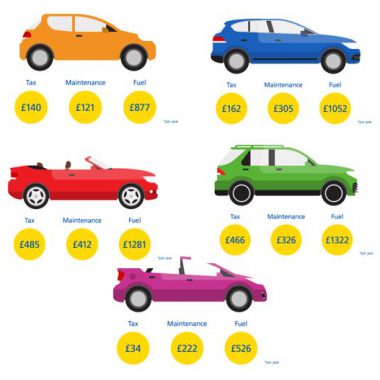
There are certain things that you just can’t be sure of. For example, car insurance will vary greatly depending on the type of car you have, your age, your driving history, and numerous other factors. But you can inform yourself of long-term maintenance costs. Choosing the right model could save you a huge amount of money over the lifetime of your car.
Aviva Insurance recently looked at how much hatchback, estate/saloon, convertible, SUV and electric/hybrid cars cost over their lifetimes. Their research assessed the main expenses of popular models for each category of car in current dealerships.
Stuart Masson from The Car Expert has reviewed each of these models with us to provide some invaluable advice when choosing your next car.
Hatchback
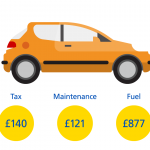
Masson says,
“Hatchbacks are still the most popular type of car sold in the UK, every day, week and month of the year. They are generally very practical and fuel efficient, and relatively inexpensive for servicing and repairs.”
Hatchbacks are the cheapest for maintenance at an average of just £121 annually, however, as with all non-electric vehicles, the cost of fuel can really add up over time.
Estate/Saloon
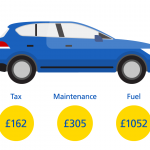
Estate and saloon cars fared worse than hatchbacks, due to the fact that they’re larger and use more fuel. At an average of £1519 for tax, maintenance and fuel, they’re nearly £400 a year more expensive than their hatchback cousins. Masson adds that
“depreciation is usually worse so you will lose more money over the first few years.”
Convertible
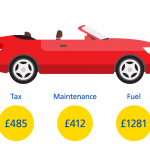
According to Masson,
“UK drivers buy more convertibles than anywhere else in the world. But you do pay for the privilege of dropping the top; convertibles cost more than equivalent coupés, and driving at speed with the roof down will seriously affect your fuel consumption.”
Tax is significantly higher than other types of car on the list, and this could increase under new tax rules if the car is worth more than £40,000.
SUV
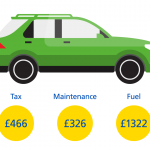
Masson states that buying an SUV for most people is “a case of style over substance.” He states, “most so-called SUVs have little to no off-roading abilities and will never see anything more challenging than a gravel driveway.” As you can see, their costs are very high in each category. Masson says this is because
“they are often based on normal hatchback models, but you are paying more money and getting extra weight, poorer fuel economy and higher levels of pollution, all to enjoy that chunky SUV styling and feel.”
Electric/Hybrid
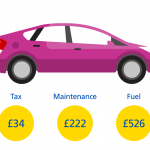
As you can see, the running costs of electric/hybrid cars is unrivalled. The cars Aviva Insurance looked at include both, which means the cost can be lower or higher depending on which car you choose. If you go for an electric model, you won’t have to pay fuel or tax but you will need access to a charging point – which is becoming much easier with thousands being installed across cities like London. In terms of hybrids, Masson says,
“around town, you can use the electric motor for clean, quiet urban driving. And out on the road, you have a petrol engine to give you the range you need.”
The results show that hatchback, hybrid or electric models will save you the most money over the course of your car’s lifetime. However, with recent plans to ban all diesel and petrol cars by 2040, selling non-electric vehicles on may become a challenge.
As a society, we are becoming more and more environmentally and financially conscious, and with that, the future is looking cleaner, greener… and electric.
Research Source: Aviva




